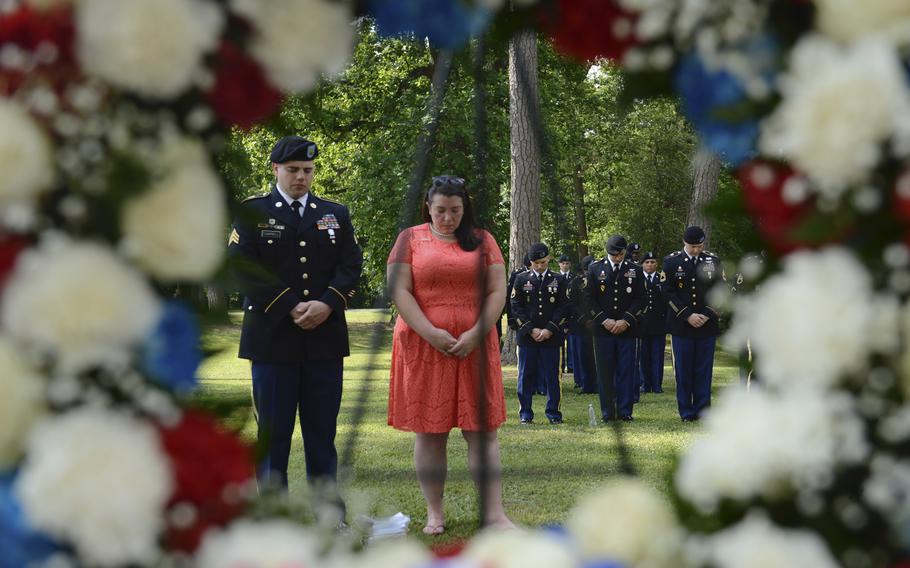
The Bronze Cross Statue Memorial Wreath Laying Ceremony at Joint Base Langley-Eustis, Va., on May 20, 2017, pays tribute to Gold Star families. (Kaylee Dubois/U.S. Air Force)
WASHINGTON — A limitation on how long spouses of fallen service members can receive cheaper health care benefits could be lifted under a new bill introduced in the House.
The legislation seeks to remove a cap that allows surviving spouses to retain health care coverage through Tricare, the military’s health care program, as an “active-duty family member” for only three years.
Spouses then transition into a family member of a retiree status and are forced to pay higher fees and out-of-pocket costs. Lawmakers say they want spouses to remain in the first category without a time limit.
“Gold Star spouses of service members who sacrificed their lives overseas defending the United States’ interests should still be treated as active-duty dependents in regard to their health care,” said Rep. Don Bacon, R-Nebraska. “This is a small step forward in honoring their sacrifice and caring for their families.”
Bacon, the bill’s co-sponsor, said thousands of surviving spouses are paying the retiree rate for health care due to the current law. After three years in the “active-duty family member” category, spouses incur additional costs to either retain their coverage or switch to a plan with more out-of-pocket costs.

The Gold Star lapel button, an official decoration issued to widows, widowers, parents and next of kin of service members who die in a conflict. (U.S. Army)
The proposed legislation would apply to spouses who meet the criteria for the Gold Star lapel button, an official decoration issued to widows, widowers, parents and next of kin of service members who die in a conflict.
Democrat Marcy Kaptur of Ohio, the bill’s other sponsor, said lawmakers owe it to fallen service members to take care of their spouses long after their deaths.
“I encourage each of my colleagues to support the Gold Star Spouses Healthcare Enhancement Act as one small way we can honor the debt they and their spouses are owed by our grateful nation,” she said.